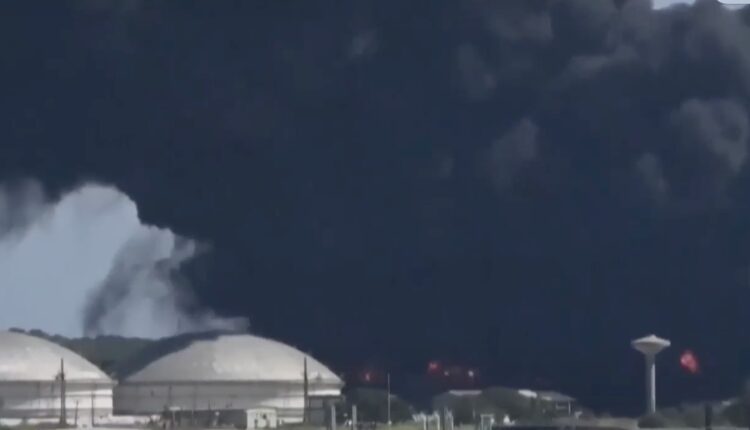
Could the Matanzas fire tragedy create new U.S.-Cuba cooperation possibilities?
In the midst of the decades-long conflict, the fire at the Matanzas supertanker base may have opened a door for possible new cooperation possibilities between Cuba and the United States.
After noon on Saturday, August 6, the United States Embassy in Cuba reported that it was in contact with authorities in Havana about the incident. A little later, Cuban Deputy Foreign Minister Carlos Fernández de Cossío thanked people and organizations in the United States for their “profound condolences and expressions of help.” He said Washington offered technical advice, the details of which were left to local experts.
It would not be the first case of emergency cooperation between the two countries. In 2014, more than 200 Cuban health professionals fought Ebola in Guinea-Conakry, Liberia and Sierra Leone, in West Africa, together with health professionals from other countries — including the United States — in hospitals built by U.S. troops.
Oil safety, in particular, had already been a topic of common and even regional interest. In 2011, in Nassau, Cuban specialists discussed the area’s situation with colleagues from the Bahamas, Mexico, the United States and Jamaica.
None of this was accidental. The following year, Repsol, the Spanish multinational energy and petrochemical company, would begin to drill a well in deep Cuban waters, ultimately without results. In an unwritten agreement, constructed with watermark by the current U.S. ambassador to Mexico, Ken Salazar, then Barack Obama’s Secretary of the Interior, Repsol agreed to comply with U.S. regulations to operate in Cuba.
Not even a simple pen was made in the U.S. on the drilling rig. No part of the structure exceeded the 10 percent U.S.-origin content regulation. Part of the understanding included the inspection that United States experts carried out on the platform in Trinidad-Tobago, before it was installed in Cuba.
Of course, the Repsol business did not go undetected by adversaries of relations between Washington and Havana. With no subject for discussion in terms of US law, the criticism was directed at oil security. The main reference was the 2010 explosion and sinking of British Petroleum’s Deepwater Horizon offshore platform, southeast of Louisiana. The well caught fire and caused the largest accidental oil spill in living memory in the Gulf of Mexico.
With diplomatic relations restored, Cuba and the United States agreed in 2015 to cooperate in disaster risk reduction and oil spill prevention and response. Bridges of understanding constructed during the Obama era contrasted with the difficulties in the previous administration under George W. Bush.
In 2001, after the devastating passage of Hurricane Michelle through Cuba, the U.S. offered an evaluation team and assistance through non-governmental organizations. The island politely declined the offer, but wanted to take advantage of a law from the previous year that, within U.S. restrictions, allowed it to exceptionally buy food in the U.S. That operation, which was to be a one-time operation, became permanent and now exceeds 6 billion dollars.
Offers similar to the previous one were made by the United States in subsequent years, always in reaction to the passage of hurricanes over Cuba. But the island rejected the initial proposals and proposed, in turn, other formulas that implied a better bilateral treatment, such as discussions on disaster prevention or the relaxation of economic aggression, which the Bush administration always opposed. Bush also rejected the Cuban offer to send a medical brigade after Hurricane Katrina hit the United States in 2005.
It now remains to be seen what new possibilities for cooperation are created in the face of the ongoing oil tanker base tragedy.
Gerardo Arreola is the author of “Cuba. The future up for debate. Mexico, CA, the Caribbean and global issues that pass through these crossroads.”
From his blog, DelGranCaribe, in Mexico’s La Jornada newspaper. Translated to English by Progreso Weekly.

